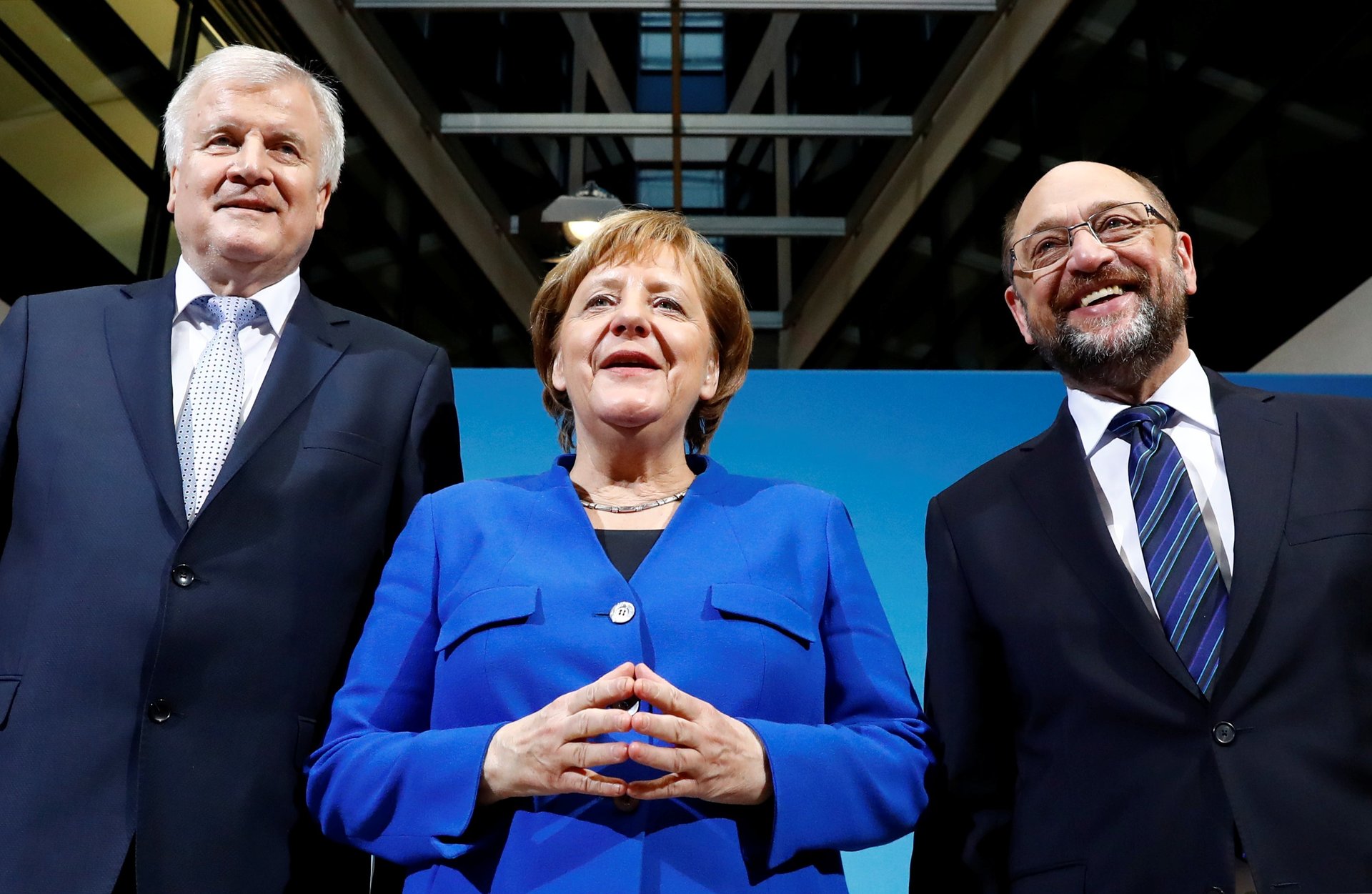Merkel’s coalition deal steers Germany away from the threat of an early election
Nearly four months after Germany’s general election, chancellor Angela Merkel’s Christian Democrats (CDU) have hammered out a blueprint for forming a new government with the Social Democratic party.


Nearly four months after Germany’s general election, chancellor Angela Merkel’s Christian Democrats (CDU) have hammered out a blueprint for forming a new government with the Social Democratic party.
The preliminary deal means the parties can start negotiations on the next coalition government. On the surface, it looks pretty much like the last one: the SPD were junior partners with Merkel’s conservatives from 2013-2017.
However, the Social Democrats have more leverage this time round. After the CDU’s disappointing election result and the subsequent failure to form a coalition with the Free Democrats and the Greens, Merkel’s options were limited. The chancellor was reluctant to head up a minority government, and a snap election could have spelled the end of her career—so she has been under intense pressure to make the talks with her former partners work.
“We realize that the world isn’t waiting for us,” Merkel said on Monday morning. “We are convinced that Europe needs a fresh start and have developed the right ideas to go with it.”
Refugee policy, taxes, and government spending were the main bones of contention. The 28-page blueprint from the five days of haggling (that dragged on until 5.30 am local time today) is open to revision. The main policy points they’ve agreed on are: strengthening and reforming the 19-member euro zone (including paying more into the EU budget); capping refugee intake to 200,000 per year; and not increasing taxes. A rise in government spending on education and home construction is included. Both parties agreed earlier this week to abandon Germany’s goal of cutting its carbon emissions by 40%, from 1990 levels, but 2020.
Europe exhales
The EU and the markets were cheered by prospect of an end to the months of political uncertainty in Europe’s largest economy. European Commission president Jean-Claude Juncker called it “a big win for Europe,” while the euro climbed to a three-year peak against the dollar on Friday morning.
The German news boosted the euro, which has also gone from strength-to-strength over the past 12 months, amid a series of elections in member states.
Germany is not out of the woods yet, however. The preliminary deal could still be derailed by many still-skeptical SPD members and needs approval at the party’s congress on Jan.21. In reality, the next “grand coalition” wouldn’t be up and running before the beginning of April.
However, today’s breakthrough could safeguard Merkel’s political career, which has been looking somewhat shaky since the election, for another four years. Some polls have indicated that she would have fared badly in snap elections as voters are tired of their long-time leader. A recent Handelsblatt survey found that many voters doubt she will serve out her fourth term.